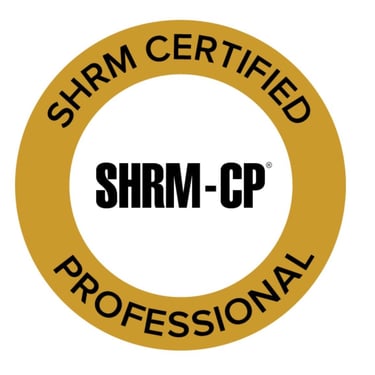Experience. Integrity. Results.
The Peter Principle: When Promotions Go Wrong
6/9/20254 min read


The Peter Principle: When Promotions Go Wrong and What to Do About It
Funny how some ideas keep popping up. For me, a couple of weeks ago, it was the Peter Principle. I heard it mentioned not once, not twice, but three times in different conversations and podcasts. It got me thinking, and if it's coming up that frequently, it's clearly a concept that many of us observe in the workplace.
We've all seen it happen, or perhaps even experienced it ourselves. A highly competent individual excels in their role, gets promoted, and then... struggles. Suddenly, their previous brilliance seems dimmed, their effectiveness diminished. This isn't necessarily a fault of the person; it's often a classic case of the Peter Principle in action.
Coined by Laurence J. Peter and Raymond Hull in their 1969 book, The Peter Principle, this concept states that "in a hierarchy, every employee tends to rise to their level of incompetence." In simpler terms, people get promoted based on their success in their current role, rather than their aptitude for the next one. They continue to be promoted until they reach a position where they are no longer competent, and there they remain.
Why Does the Peter Principle Occur?
It's rarely malicious. Companies want to reward good performance and provide growth opportunities. However, several factors contribute to this phenomenon:
Rewarding Past Performance, Not Future Potential: We often promote our best individual contributors into management roles, assuming that being great at doing the work means they'll be great at leading others to do the work. These are fundamentally different skill sets.
Lack of Development Focus: Organizations might promote someone without providing the necessary training, mentorship, or support for the new responsibilities.
Halo Effect: A person's strong performance in one area might create a "halo" that blinds leaders to their potential weaknesses in a different, higher-level role.
Reluctance to Look Outside: Sometimes, there's an internal pressure to promote from within, even if a more qualified external candidate exists.
The Cost of Incompetence
The Peter Principle isn't just an interesting theory; it has very real and damaging consequences for organizations:
Decreased Productivity: An incompetent manager can hinder their team's output.
Lower Morale: Teams become frustrated with ineffective leadership, leading to disengagement and turnover.
Increased Workload for Others: Competent colleagues may have to pick up the slack, leading to burnout.
Strategic Missteps: Incompetence at higher levels can lead to poor decision-making that affects the entire business.
Damage to Company Culture: A culture where people are promoted beyond their capabilities signals that competence isn't the primary driver of advancement.
What To Do When Someone Is Promoted Into a Role They Are Not Qualified For
So, what happens when you realize someone (or perhaps you yourself) has reached their level of incompetence? This is a delicate situation, but addressing it promptly and strategically is crucial for the health of the organization and the individual.
Acknowledge and Assess, Don't Blame:
Self-Reflection (if it's you): If you suspect you're in over your head, acknowledge it. This is a sign of self-awareness and strength. Identify specific areas where you're struggling.
Objective Assessment (if it's someone else): Focus on performance and outcomes, not personality. What specific responsibilities are they failing at? How is it impacting the team or business? Avoid personal attacks.
Provide Targeted Support and Training:
Identify Skill Gaps: Work with the individual to pinpoint the exact skills or knowledge they lack for the new role. Is it leadership, strategic thinking, technical expertise, communication?
Offer Training & Development: Provide access to relevant courses, workshops, executive coaching, or mentorship programs. This shows commitment to their success.
Clear Expectations & Feedback: Reiterate the expectations for the role and provide consistent, constructive feedback on their performance.
Adjust Responsibilities or Re-evaluate the Role:
Redistribute Tasks: Can some of the more challenging responsibilities be temporarily or permanently delegated to others while the individual develops?
Redesign the Role: Sometimes, the role itself might be poorly defined or too broad. Can it be reshaped to better fit the individual's strengths while still meeting organizational needs?
Consider a Lateral Move or Demotion (The Hard Truth):
Lateral Move: If, after support, the person is still struggling, a lateral move to a role that better suits their strengths and previous level of competence can be a viable solution. This allows them to stay with the company in a position where they can genuinely contribute and excel.
Demotion: This is often the most difficult option, carrying a significant stigma. However, if the individual is consistently underperforming and causing damage, and other solutions haven't worked, it may be necessary. It's crucial to handle this with extreme empathy, transparency, and a clear explanation of why this decision is being made and what future opportunities might exist. Focus on their success in a role where they can truly thrive.
Prevent Future Occurrences:
Robust Talent Assessments: Implement more rigorous assessment processes for promotions that evaluate not just past performance, but also leadership potential, strategic thinking, and emotional intelligence.
Succession Planning: Develop clear succession plans that identify future leaders and define the skills needed for each level.
Mentorship Programs: Create formal mentorship programs to guide employees as they transition into new roles.
Focus on Development, Not Just Promotion: Emphasize that growth isn't only about climbing the ladder, but also about developing new skills and becoming more effective in current roles.
The Peter Principle is a systemic issue, not a personal failing. By understanding its dynamics and taking proactive, empathetic steps, organizations can avoid its costly consequences and ensure that every employee is in a position where they can truly thrive and contribute their best.





